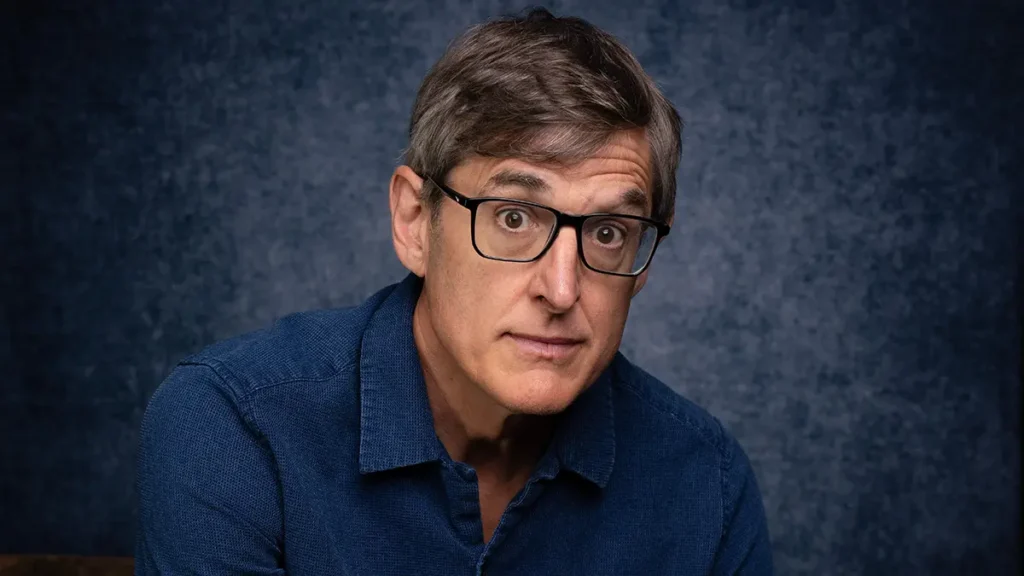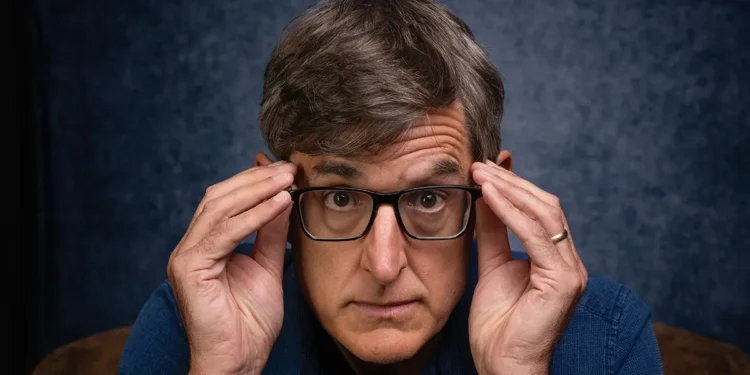Esteemed documentary filmmaker Louis Theroux opens the lid on his latest triumphant TV return, and reveals how taking his work home almost killed him.
Louis Theroux has mastered the art of storytelling, introducing audiences to unique individuals and, in the process, allowing for profound self-exploration. Yet few understand the weight of such adventures and how taking these stories home nearly cost him everything.
The Weight of Storytelling
Louis Theroux reflects: “It’s never as simple as just shutting down the camera and proceeding to the next assignment. The essence of documentary work goes deeper than that.
“Every encounter, every story – regardless of its duration – leaves an indelible mark on you. It’s about recognising and internalising those shifts, understanding that each experience has, in subtle or profound ways, reshaped your perspective and arguably altered your narrative going forward.”
For many, distinguishing between personal and professional spheres can sometimes prove to be a complex endeavour, and even for someone as intelligent and skilled as Theroux, the reality is no different.
Encounters That Leave a Mark
In one memorable instance, he immersed himself in the world of America’s most infamous White Aryan Resistance hate group for his documentary named Louis and the Nazis, and admitted: “An unsettling sensation grips you, almost palpable in its intensity. This feeling of disquiet refuses to dissipate easily.
“Remarkably, its grip remains steadfast and persistent, even when vast distances separate you from its source – from those very individuals who originally sowed seeds deep within your psyche. That documentary in particular was quite emotional.”
Another instance – memorable for the wrong reasons – occurred when Theroux filmed one of his BBC Two specials called Mothers on the Edge, meeting women who have been admitted with a range of serious conditions – including depression, anxiety and psychosis. It had a profound effect on him.
“After delving into that one, I was extremely moved. It’s one thing to explore the fringes of society, but to witness the struggles of motherhood, the sheer resilience and vulnerability – it was deeply humbling.
“It’s a testament to the silent battles many face, and it reminded me of the universality of human experience and emotion.”

The Risks of Mastery
To be a master of one’s craft, that person must take risks. However, such gambles shouldn’t threaten their wellbeing. Theroux’s encounters, with extremists, criminals and those on the fringes of society, often left him emotionally vulnerable.
“There were moments in the middle of the night when sleep would elude me, and other times when I could sleep but the result was tortuous,” he candidly recalls.
“I’d be tormented by the images and tales I’d encountered. Some experiences imprint themselves so profoundly that they’re irreversible. If you find them hard to shake off, there is a real danger of them becoming an inseparable chapter of your personal narrative.”
Balancing Passion and Profession
And yet, it is this treacherous ground… this blend of passion and profession, especially when dealing with the intense subject matter, that Theroux has always been drawn to. There’s a peril in becoming too attached, in letting the stories one tells seep too deeply into the psyche.
“Emotionally, it feels akin to balancing on a highwire without a safety harness,” he says. “There’s a perpetual act of juggling your own feelings with an obligation to authentically narrate someone else’s.”
Looking Forward
Yet Theroux refuses to let the journey keep him away from his passion. His latest interviews include boxer Anthony Joshua, Hollywood icon Dame Joan Collins, and whistleblowing activist Chelsea Manning.
Theroux says: “Working on new programmes was hugely gratifying. The guests were all absolute individuals in every way, and excellent in diverse ways, who have negotiated obstacles and grown to accomplish colossal feats.
“I believe the evolution of the subject – star names as well as those you may deem everyday people – is worthwhile; in much the same way as is the subject matter, with conversations over mental health so much more the norm nowadays.
“I am glad we are still talking…”








